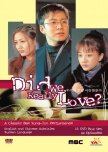
Cette critique peut contenir des spoilers
My Review of Did We Really Love?
Did We Really Love? (1999) marks the end of the early years of Bae Yong Joon as an actor. In 1999, Yong Joon enters the ancient and historical Sungkyungkwan University to study drama and film directing. Does not return until 2001, when he shows off everything he learned in his college years in the drama Hotelier (2001). He bids farewell to this cycle with this serious plot drama. Did We Really Love? is a South Korean drama series broadcast by MBC in 1999. Starring Bae Yong-Joon, the series portrays the struggles between love, happiness, and the pursuit of material success. (Source: Wikipedia)Jae-ho and his sister Jae-young were abandoned by their mother to escape poverty. Because of this, Jae-ho doesn't understand what love is. And so, he has a dream of becoming rich, thinking that there is no such thing as love, only money. He works hard his whole life while supporting himself and his sister through college. He works at a seafood wholesale market selling crabs to vendors. He lives with his aunt who has taken him and his sister in after their mother abandoned them. With his big dreams and ambitions, he pretends to be rich while in school, in order to gain the attention of Hyun-soo, who is from a very rich family. Thus, he tries to get her to like him so he can marry into her family and become rich. But during this process, he falls in love with his Psychology teacher, Shin-young. He battles with his feelings and his ambitions and ultimately picks love over money. Even though they go through hardships, he realizes that he can't survive without both, and so he gives up on Shin-young for money and wishes her happiness. He only does this because everything seems to go wrong while he is with Shin-young. He loses his job, all his money, and his aunt's house gets seized. He thinks that if he has money, none of this would have ever happened. Through all the stress, he finds out that he has brain cancer and expresses his desire to die.
Fun Facts of Did We Really Love?:
Bae Yong Joon is one of those leading actors who kiss little in movies and dramas. However, this is the drama which has kissed most.
Yong Joon is a gentleman, but in this drama, he was asked to give the actress who characterized his sister the only slap he has given on television.
Yong Joon entered the historic Sungkyungkwan University when the drama ended. Precisely Yong Joon's character is a college student who has a full-time job.
This is the only drama where the character of Bae Yong Joon dies. The scene is quiet because he dies while he was sleeping, in the arms of his wife.
It is the only drama where the character of Bae Yong Joon becomes seriously ill. He suffers from brain cancer and very real presents all stages of the disease: dizziness, nausea, vomiting, severe headaches, loss of vision, hearing loss and quadriplegia.
My Opinion:
It is a very real drama, with situations that can occur in any country. Bae Yong Joon presents the reality that many live: studying, working, sacrificing, getting sick. All with a stunning realism. The one who sees this drama needs to arm himself with strength because he lives it as if he were a family member tearing himself before our eyes. The scenes of his suffering as a cancer patient touch our soul. So much to work, study and get a degree in finance, the desire to be rich, the love of his family, the sacrifice of leaving the love of his life for money, feeling worthy of pity, come to less, the desire to die when losing his senses, the encounter with his mother in that lamentable state, the birth of a nephew that bears his name and will never see grow, and finally, the resignation and succumb to death in the arms of his wife. The drama of every day, in many families in the world, expressed with pain. It is the most painful drama to represent in Yong Joon's career. A jewel of dramatic art. Because this drama we can all live in real life ...
An anecdote that I wish to share ...
I watched this drama seven and a half years ago. I just became widowed just a week ago. I cried inconsolably in the final episode, because my husband died in my arms, sleeping peacefully, in the same way, that Yong Joon dies in the drama. The impression I got was very big. Only to share with you. Thank you for allowing me to tell you and to undress my soul...
Cet avis était-il utile?
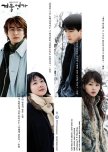
Cette critique peut contenir des spoilers
Winter Sonata is a beautiful drama that touches the theme of the first love, the first kiss, which is never forgotten. Beautifully set in a beautiful winter, snowy white, the color of innocence. Bae's role has two aspects: it is like Yin and Yang: distrust, bitterness, sadness, desire to form a family and a stable home (Jun-Sang) versus joy, confidence, and nonchalance (Min Hyung). The drama presents three symbols of this first love: winter, Polaris and the puzzle. The white Korean winter is the favorite season of the protagonists, innocent as the first love that so beautifully characterizes. In winter, Christmas and New Year coincide, especially the new year, which is always a new beginning, whether good or bad. Polaris represents Jun Sang, who despite being lost to Yu Jin for 10 years, since his "death", until he finds him again and does not lose him again. When the chain is broken, it symbolizes the little time that will separate to never again be left. The puzzle represents Yu Jin, which is the lost piece of Jun Sang, and without which he can not be happy. Contrary to what many people think, Jun-Sang is not totally blind at the end of the drama, but he is a "Legal Blind" and we realize this when we watch the scene years later, where his friends have a daughter and they receive Yu Jin, after her return from her studies in Paris and we see him from behind, watching the scene. The total blind cannot hold their eyes, while the legal blind sees little, but they can see, so he continues to wear his glasses. The healing process of Jun-Sang is slow and painful and is presented in the Anime that was made a few years later. It is a drama that everyone who loves Korean dramas must see. All love, pure and innocent. Cet avis était-il utile?

Cette critique peut contenir des spoilers
Hotelier is a 2001 drama, set in the Seoul Hotel, a five-star fictional hotel, subjected to extremely expensive expansion and renovation. The word "hotelier" means "a person who owns or manages a hotel." A new Japanese version was presented in 2007 by TV Asahi. (Synopsis by Wikipedia)President Choi, the hotelier of Seoul Hotel, died of a heart attack, hours after his old friend Kim Bok-man informed him that his company Hankang, was buying shares in Hotel Seoul in preparation for a handover. Choi is succeeded by his wife, Yoon Bong-sook, who had never taken a management position in the hotel before. His son, Choi Young-Jae is a dissolute youth who refuses to work and is all the time partying. To fend off competitors, Ms. Yoon sent to one of the employees of the hotel, Seo Jin-young, to the United States, to try to hire a former director of the Hotel, Han Tae Jun again, who was forced to resign after a scandal, despite his innocence. Tae Jun is taking care of Jenny, a Korean-American, drug-addicted girl. To assist him in the purchase of shares of Hotel Seoul by any means possible, Bok-man hires Frank Shin (aka Shin Dong-hyuk), a wealthy Korean-American lawyer, businessman and a specialist in mergers and acquisitions. Frank only agrees to take the job after meeting Jin-young in America and is fascinated by her. He travels to Seoul for the first time, since leaving the country as a kid. Frank and his loyal assistant in business, Leo, move to a villa in Seoul Hotel, in order to effectively carry out their business dealings secretly. Through the double dealings of Frank, Bok-man has problems. But Frank is falling in love with Jin-young, and she is at the crossroads of deciding between Frank and his old friend and colleague Tae-jun. Meanwhile, Young-Jae falls for Kim Yoo-hee, melancholy heiress and daughter of Bok-man, after meeting her in a nightclub. But Yoon-hee is attracted to the mature Tae Jun, whom she had met at a birthday party held at the hotel. Tae Jun is overwhelmed by his many responsibilities: defending the hotel from its competitors, protecting Yoon-hee from his abusive father, preventing Jin-young fall in love with suspicious Frank, and helping Young-Jae to straighten his ways. Frank soon discovers that Jenny, whom Tae-jun had rescued, is his biological sister. Together, they go to see their father, who calls them by their Korean names, Dong-hyuk and Dong-hee. His reconciliation with his family and love for Jin-young results in a change of heart for Frank, and he decides to switch sides and help Seoul Hotel. Tae-jun and Frank work together and succeed in re-establishing Seoul Hotel's reputation as a top hotel. Bong-sook is diagnosed with cancer and dies. Frank and Jin-young get engaged. Yoon-hee goes to Las Vegas to study business, and Tae-jun follows her abroad; in a scene after the ending credits, Tae-jun and Yoon-hee are shown reuniting on a highway road.My review:
I watched Hotelier, after watching Winter Sonata, when I was looking for more dramas of who will be my eternal oppa, Bae Yong Joon.
This is the first acting work of Bae Yong Joon, after starting studies at the legendary and historical Sungkungkyan University. This is the "after" in his acting career. From this point, we see the evolution of Bae Yong Joon. We see him more on his character, his movements, gestures, and dialogues. Definitely, his emotional maturity and his acting maturity are evident here. He demonstrates everything he learned in his studies. Many have not realized that Frank Shin is not the protagonist of this drama, but Tae Jun. Nor, many have realized that, in this drama in particular, the story was written, episode after episode. For this reason, Frank Shin ends up "stealing" the leading role, masterfully. One of the "veiled" issues that manifest itself in this drama is "the dysfunctional family" and "racism." Frank regrets what his father done with him and his sister, and was painfully for both to reconcile. Money is also spoken of as a weapon to acquire power. But it gives us the lesson that, while it is true that money gives us power, that power can be used to do good deeds, like Frank's, who bought the Seoul Hotel, but was left out of Bok Man's revenge, leaving the hotel in the hands of Tae Jun, and without dismissing any of the employees, who felt like a family. And that love is above money. The music is beautiful, the stages are spectacular. I praise Bae Yong Joon's effort to try to express himself in English, with a strong Korean accent, which should not be interpreted as meaning that Bae cannot speak the language, but his character, who despite being raised in the United States, still retains his estate. Also the effort of speaking a little Spanish, trying to pronounce the Spanish surname "Rodríguez". My favorite scenes are the gift of the scarf, the 300 roses, the pool, the dance, the kiss in the basement of the hotel, the anger with which the bottle of wine breaks and the end of the drama. What was going to be a trip to earn millions of dollars, and never return, became the return home and find love. I give a BIG 10!
Cet avis était-il utile?
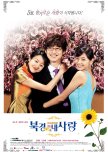
Cette critique peut contenir des spoilers
This Chinese drama turn me to love Korean Dramas
I started watching oriental dramas (Japanese, Chinese) on CCTV in Spanish. I've always liked it, but one day I came across this unique drama, totally different from all the Chinese dramas I had seen, and I noticed the Korean and Chinese co-production and decided to look for information from the Korean actors in Beijing My Love. This was in 2006, and to this day, in 2018, I still follow Korean dramas with interest. I had the great fortune to watch the Chinese version of this drama, which has 31 episodes (the Korean has 20 episodes). I was totally in love with the characters and learned a lot about the cultural differences between Chinese and Koreans. I only regretted that the kiss of love was in the last episode. I learned that there are linguistic differences between the Chinese and Koreans, not only because of the language barrier but in the idiomatic phrases. I learned that Koreans are accustomed to giving tofu to people who come out of jail, to replace protein and improve their diet, but it is wrong for a man to ask tofu to a young lady, because in China that is asking for illicit sex. Also that there is taboo with tattoos. The tattooed men are related to the Chinese triads and the Japanese yakuza. And that there is a lot of respect and familiarity among the Orientals. I saw that Koreans are extremely respectful, bowing, something that the Chinese are beginning to forget. The name of Na Min Guk refers to the Korean flag. For the first time, I saw that the Koreans walk barefoot or with slippers inside the houses. For me, it was like a Far East 101 course. I watched how seriously is the Confucian filial piety and how respectful Orientals are in love. I highly recommend it. It has a lot of comedy, it is light and deep at the same time. Kim Jae Won sings in his recent drama one of the OST songs of this drama. Something that many have not realized. I speak of his mother's favorite song in the drama "Let Me Introduce Her", of 2018, just finished. I highly recommend it.Cet avis était-il utile?
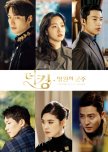
The King : Eternal Monarch
2 personnes ont trouvé cette critique utile
Cette critique peut contenir des spoilers
This review will be a little long, but it is necessary. Please read carefully and calmly.To give my opinion on this drama, I must put it in its great and fair perspective: WE ARE ADULTS AND THIS IS A FAIRY TALE FOR ADULTS. We all have an inner child, who from time to time, for our mental hygiene, manifests itself.
THE FAIRY TALE DEFINITION IS AS FOLLOWS:
In children's literature the genre of the story is especially valued. There are children's stories of all kinds: classic and traditional, fables, legends and mythical stories adapted or fairy tales.
KEY FEATURES:
The stories that are told are fantastic and appear imaginary beings who share adventures with human characters.
The natural and supernatural dimension intermingled. In this sense, there are characters who change their appearance, others who live eternally, natural elements with feelings and endless magical aspects.
In the tales there is a permanent tension between the forces of good and evil, but eventually the stories end with a happy ending.
IN UNIVERSAL CULTURE:
These tales are part of humanity's cultural heritage. With them the little ones feed their fantasy world, since in children magical thinking plays a relevant role. However, beyond children's stories, in fairy tales we find other elements that also interest adults: the craving for freedom, the pursuit of happiness and the need to daydream.
In every fairy tale there is a handsome prince, who rides in a white steed, in search of his princess. There is a villain, eviler than anyone, there is a fool and a bad witch.
The Prince: King Lee Gon
The White Steed: Maximus
The Prince's Squire: Jo Young
The Princess: Jung Tae Eul
The Villain: Lee Lim
The Witch: Koo Seu Ryung
The Fool: Kang Shin Jae
The Fairy: The Yoyo Kid
The Fairy's Magic Wand: The Flute and the Yo-Yo
And to really enjoy this dorama, we must let our inner child breathe, and manifest himself, and let us not drown him with our meanness and worries. This is a necessary exercise for our good mental hygiene. We must be excited in life.
Fairy tales do not seek to teach on a specific topic, nor are they literature to contribute to our intellect and spirit, because they only serve to ENTERTAIN. They only present the struggle between good and evil, and how good overcomes evil. And present the struggle for ideals. THIS IS A MODERN ADULT FAIRY TALE. THAT’S IT.
Fairy tales are often taken on the license to take some elements outside of culture, and that are not necessarily entirely historical.
If we take this into account, we cannot get so angry with the scriptwriter, because she just wanted to blow our imaginations, in a world as complicated as the one we are living in right now (Coronavirus, global tensions, problems of global economy, etc.)
What if the Netizens criticized whether to analyze or give the screenwriter the opportunity, which allowed the King to dress him in a royal hanbok of the Joseon Dynasty and wear on his head a crown of the Silla Kingdom (THING THAT HAS A REAL MEANING, WHICH LATER WE WILL SEE, STILL A HISTORICAL ERROR).
And what that if the Netizens returned to criticize that the seat of the Kingdom was in Busan and that Seoul is the political capital, and especially the tantrum that these same Netizens formed by the Japanese pagodas of the "opening", and also the tantrum that they formed because, if the Kingdom is united and the Republic separated from the North, (THINGS THAT MAKE SENSE, WHEN THEY ARE ANALYZED, EVEN THOUGH THEY ARE HISTORICAL ERRORS.) We must be like children and be more condescending with this drama, if we take "The King: Eternal Monarch "like an adult fairy tale that only served to make our imaginations run wild. Of course, I think that all Korean physicists and mathematicians who are serious professionals, should be RAGING seeing how most of how THEY DESTROYED SO SERIOUS THEORIES, FOR THE PURPOSE OF A HISTORY, WHICH NOT EVEN THE SAME LEE MIN HO DID NOT UNDERSTAND, BUT Despite all this, these are elements and licenses that a good writer needs to take to make a good fairy tale.
And as for the end, one incredibly happy, because as in every fairy tale, the prince stays with the princess and they are happy to stay. (OF COURSE; WITH A MODERN TWIST. THEY DID NOT MARRY AND WERE SNEAKING TO LOOK LIKE LOVERS ON WEEKENDS.)
GOOD THINGS:
BUDGET:
The cost of production: $25 MILLION DOLLARS. The special effects were excellent, the Korean tourist sites were exposed to attract tourism.
COSTUME:
The costume may have been more exuberant, according to that production budget. But nevertheless, they all dressed elegantly.
PERFORMANCE:
Excellent! A dream cast, who worked as pieces engaged with each other. Lee Min Ho as the King (the fairy tale prince of the story) fully completed his work. Handsome, tall, sportsman, excellent action actor (Remember his performance in City Hunter), the inexhaustible Lady Noh, the villain Lee Rim, the one we all hate, the beloved Jo Young, the Unbreakable Sword, the conflicted and suffered Shin Jae, the hateful Prime Minister Koo Seu Ryung. Jung Tae Eul, the princess of the story, a tough girl with a tender heart, I have nothing negative to say of them. I did not like that the President of the Republic of Korea never appeared, and that it should have been Lee Gon’s double.
THE OST
The soundtrack of this drama is superb.
THE FLUTE, REAL, HISTORICAL AND MYSTERIOUS
The Manpasikjeok,a legendary flute believed to calm the seas and drive away any concerns. The bamboo flute was called" Manpasikjeok”, which means a flute that calms ten thousand waves and became a national treasure. Apparently, ten thousand waves here refer to all kinds of hardships or storms of life. Some say this legend reflects the Silla dynasty's desire to bring people displaced from two other kingdoms that it had unified and establish peace and stability in the United Kingdom of Silla. And we see here how the screenwriter, like a good Korean, wants the unification of the peninsula, a national desire.
WHY THE CROWN OF THE KINGDOM OF SILLA?
The Netizens were superficial because they did not relate this crown to the Manpasikjeok flute, both of which come from the same historical place. We must think twice about things before saying them, you should not be superficial, everything in the dramas has a meaning, we must be critical in our way of thinking. It is an advice I give to the Netizens.
WHY BUSAN?
Because Busan is nestled in the former capital of Silla. (at the south of Korean Peninsula.)
WHY IS LEE GON THE THIRD KING OF THE KINGDOM OF KOREA?
Because this kingdom was established in the drama after Korean independence from Japan. That's how it should have been naturally if the nation had not been divided later as a result of the Korean War in 1950.
IDEALS PRESENTED THE DRAMA:
The author presents in a veiled way Judeo-Christian element (The tree of life in paradise, Adam and Eve, the Devil, the concept of limbo, the seeds that are born in a New Land.) But these same elements could also represent a Unified Korea, North And South Korea and the limbo could be the DMZ (Demilitarized Zone), the Japanese invasion, subliminally seen in the much criticized "opening" of the pagodas. Because this drama, like a good fairy tale, makes our imaginations fly.
THE YOYO BOY
The yo-yo's boy is the spirit of the flute, and according to everyone they had a double in the other world, twice as much of the flute was the yo-yo.
Yoyo's boy is really a girl!!
NOT SO GOOD THINGS AND MISTAKES
THIS PRODUCTION WAS UNTIMELY PRESENTED.
This production aired on the wrong time, because he had the bad luck to compete with the drama "The World of the Married".
SOUTH KOREA AND JAPAN WERE AT A LOW POINT IN THEIR DIPLOMATIC RELATIONS.
Remember that the invasion of Japan in 1910 is still very present in the collective psyche of Korea. And at the time of the dorama premiere, they were going through a diplomatic problem, so the naval battle of Korea and Japan in the dorama fell so badly, and the famous "opening" pagodas (even if they make sense).
THE RUN-OUT END
This drama must have been 20 to 24 episodes for everything to be resolved in a calm and coherent manner. I think that Goblin's open ending, which left a bad taste in many viewers, along with the bad reputation of the writer, for writing these controversial endings, was still present in the collective mind of all viewers. The ending was too muffled and forced, even though hardcore fans of Lee Min Ho found it perfect. But I am more objective. I look at everything objectively.
COSTUME AND HAIRSTYLE
As for the wardrobe, despite being a worthy and elegant one, it did not have the majesty that a king deserves, no matter how modern the time. The female lead could have been better dressed and her hairstyles could have been more feminine at times
LEE MIN HO'S MISGUIDED COMMENTS, SAYING HE DIDN'T UNDERSTAND THIS DRAMA.
These misguided comments from Lee Min Ho were only fuel for the Netizens, who always gave the impression of having a hate agenda against him and against the writer. Based on Lee Min Ho's misguided comments, then the drama should have been offered to an actor who mastered the themes of quantum physics and abstract mathematics, such as Kim Jeong Hoon, Prince Yul of The Princess Hours. He is also a handsome actor, extremely attractive and exceptionally good in the action genre. And based on this, he would have done a better job, of course, Lee Min Ho's work was very good, but it would have been much better if this actor had played him, because he would have endorsed the character, much more than Lee Min Ho.
LACK OF TRUE INFORMATION
But they failed to search for consistent information for scenes such as the sea battle (where they used Korean navy ships, and not the Japanese navy), and mistakes made with Maximus' saddle, which was an English saddle, and was too simple, unworthy of a king.
These are my final thoughts of the drama. If you want to see a modern fairy tale, I recommend the drama, just for fun, without paying much attention to the mistakes. And personally, I would slap the producers for destroying a drama that could have been the drama of the year, because a budget of 25 million dollars is no small matter. And I ask the screenwriter to stop giving us hasty endings.
You do not have to totally agree with me.
Cet avis était-il utile?
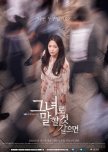
Let Me Introduce Her
2 personnes ont trouvé cette critique utile
Cette critique peut contenir des spoilers
Hello! I’ll make a “preview review” of Jo Hyun Jae’s performance as a villain in!dramas. I wish with this to make an account of the evolution of Jo Hyun Jae as an antagonist and as a villain, and as he has done so much talent show off and how, unfortunately, he has not been recognized with an award and I wish your sincere opinions as fans and followers of this fan page (I wrote this for Jo Hyun Jae Fans Puerto Rico).Jo Hyun Jae as Addie Kang (Ad Genius Lee Tae Baek)
This is the first attempt to characterize Jo Hyun Jae as an antagonist, which was a "lite villain". Addie Kang was a character who was driven by the ambitions of his father, and to please him, wanted to try to win the heiress daughter of his advertising company. The character turned out to be mediocre, despite the impressive and overwhelming presence of Jo Hyun Jae, so I see that unfortunately his talent was not used to the fullest. Perhaps, because the producers feared that this one would do the "cross-over" to more complicated roles, and not to take away his clean image of a romantic heartthrob, for fear that later the public would not accept it. And in this life, you have to.
take risks
Jo Hyun Jae as Prince Myongnong (King's Daughter Soo Baek Hyang)
His performance, drunk, in front of the painting of his real father, as crown prince in "King's Daugther Soo Baek Hyang", was the trigger for the producer to suggest that he try to be a villain in a forthcoming production.
Jo Hyun Jae as Han Do Jun ( Yong Pal)
Yong Pal is a drama that caught my attention, for the quality of the actors who participated in this production, especially Jo Hyun Jae, who was impersonating his first role as a villain. He characterized a classic villain, in an excellent way. He was a rebel with a cause, rehabilitable, who could have been saved by the scriptwriter, instead of killing him so cruelly. I realized that the drama really revolved around Han Do Jun, the character of Jo Hyun Jae, so much so, that it was necessary to add additional chapters, in which Do Jun was a "hallucination" of his sister, the product of the guilt of having sent him to death. I had to understand that Han Do Jun lived rebelliously. That he was the eldest son, but nevertheless, not the heir. And that his father had the blame for the crooked way in which he always treated him. I am very hurt, because this is the first real villain that characterizes Jo Hyun Jae, because in "Ad Genius Lee Tae Baek" characterized a "villain lite", a mere antagonist who didn't get his way, an inferior character for the great talent shoed off of Jo Hyun Jae and the reason why I'm hurt is because his effort was not recognized in the annual awards given on the television network. They never recognized his great effort with an honorable mention. He sacrificed his romantic leading man image and clean man, to characterize the evil and Machiavellian Han Do Jun, which in turn, the thirst for love was the cause of his rebellion.
Jo Hyun Jae as Kang Chan Ki (Let Me Introduce Her)
I had to watch the last half hour of the drama with subtitles, in order to understand it better. I could do it last night. Now I am convinced that Kang Chan Ki is mentally ill and is also a pathological liar, with traces of bipolar disorder. totally alienated from the reality. My biggest congratulations to Jo Hyun Jae for this great character and for his great acting skills. He is not a pretty face trying to act. The stage of flower boy idol and Prince Charming has already passed! Now he is a respectable great actor! But there is a similarity with “Yong Pal”. In “Yong Pal” Han Do Jun was a bad guy with a purpose. On this occasion, the psychiatric illness of Kang Chan Ki has a cause. In Yong Pal was his father and in “Let Me Introduce Her”is his mother. I hope he doesn’t leave us waiting for a long time to see him again, showing off his talent. Let's see what will happen in last episode.
Cet avis était-il utile?
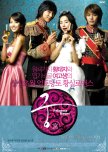
Cet avis était-il utile?
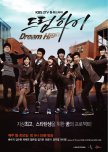
Cette critique peut contenir des spoilers
When a guest character lays the foundation for a whole drama. So who is the power behind the throne?
When a guest character lays the foundation for a whole drama. So who is the power behind the throne?This drama is fantastic!
I want to say that I am a fan of Bae Yong Joon, but that doesn't make me a blind and biased fan, even though it appears to be. I am a music and theater teacher. That's why I identify with this drama.
This is Bae Yong Joon's last drama as an actor and his first project as a producer. I recognize that this is Bae Yong Joon's drama that the public likes the least, because it is the one in which he participates the least, because he is not the protagonist and because of his youthful theme. But... did you guys ever think that those four episodes laid the groundwork for the rest of the drama? What would have happened if he had been with his character from 'The Ghost', throughout the drama? If only 4 episodes were enough to demonstrate his talent to recognize a hidden star behind an ambitious and talented young man, just imagine if he had been fully immersed in the drama and hadn't withdrawn due to illness! No wonder he had the vision to found and run the Keyeast agency back then!
His character was one that gave the impression of being contradictory, with wry humor. It brings back a lot of memories of his character Shin Dong Hyuk in "Hotelier". Professor Jung Ha Myung saw the hidden talent in the most unlikely places, with the nose of a bloodhound. The young people rejected by others were his chosen ones. He did the same thing when he trusted his teachers, the same ones who were his classmates in the same school. A failed teacher, about to be fired, a fellow antagonist, they were the spark for a group of young people, completely different, from different backgrounds, social classes, different lifestyles, to succeed together and alone. He erased prejudice from their minds, because in art there should be no prejudice. All artistic currents are valid and all are equally worthy. Be it popular art, be it classical or urban music.
His character was enigmatic, with ironic humor and even a little sarcastic. What teacher is going to look for his students and even protects them from the school administration? Very few! This earned him many enemies. What professor surrounds himself with prospects who are 'failures' to others and 'mediocre' professors, together to make them shine? Only 'The Phantom'!
And after laying the groundwork for what he wanted for the school, he left without a trace. But the 'trail' left by Bae Yong Joon (as The Ghost and as a person) lasts from 2011 to today.
Cet avis était-il utile?

Immutable Law of First Love
0 personnes ont trouvé cette critique utile
Cette critique peut contenir des spoilers
¿Por qué me gusta tanto este web drama tan serio?
Esta es la primera vez que Kim Jeong Hoon incursiona en este género del web drama haciendo una magnífica actuación y tratando un tema tan sensible como la muerte y el luto. Yo tuve que verlo varias veces para poder entendero bien. Kim Jeong Hoon interpreta a Park Jong Goo, un genio y guapo, mientras Song Ji Eun interpreta a Lee Yeo Ri. Este corto y sensible drama habla sobre el proceso de duelo que ocurre en Jong Goo, debido a la muerte de su joven esposa con solo dos años y medio de matrimonio. (el matrimonio está implícito en el drama). Resumen: Jong Goo es un joven maestro de Fisica de Escuela Superior, genio intelectualmente, guapo y sensible. Se enamora de Yeo Ri, fotógrafa de profesión. Ambos se casan luego de un corto y simpático noviazgo y luego de mil días de feliz unión, ella muere de un tumor canceroso en el cerebro. Jong Goo pasa por el proceso de luto por la muerte de su primer amor (vemos este proceso en los distintos flashbacks que vemos en el drama). Solo dos personas ven el fantasma de Yeo Ri (Ha Na, profesora de Educación Física, enamorada de él; y Chan Mi, estudiante suyo). Jong Goo marca en el calendario el día en que se va a reunir con ella, suicidándose ahogado en el mar, en la misma playa donde ella le pidió matrimonio a él. Es salvado por Chan Mi, que le indica que Yeo Ri está presente.Análisis: En el proceso de luto que vive Jung Goo vemos claramente las diferentes etapas. Él llora la soledad que siente cuando se entera de la muerte de Yeo Ri. Él vive día tras día viendo el recuerdo de ella en forma de fantasma en la casa. Él se vuelve irresponsable en su trabajo porque está afectado emocionalmente, ya que deja las clases que imparte sin terminarlas, cada vez que la recuerdan ella. Ha Na está enamorada de él, pero ella le pide al fantasma de Yeo Ri que lo suelte, y que ella se hará cargo de él. Finalmente, ella desaparece para morir y cuando él decide suicidarse y es salvado por Chan Mi y Ha Na, el espíritu de Yeo Ri se le aparece, escribiendo en la arena que lo ama a él. Él besa el recuerdo de Yeo Ri, ella le pide que sea feliz y se vuelva a enamorar. Al final, cuando el tiempo pasa, él se vuelve a enamorar, haciendo a Ha Na su novia. Este es un Drama inteligente y sensible que nos trae de una manera ligera, sin traumatizar, el tema de la muerte y del luto no resuelto.
Análisis de la foto de la Última Cena: El cuadro de Leonardo Da Vinci de la Última Cena, nos presenta una cena de judía donde Jesús comparte por última vez con sus apóstoles. Es una obra de arte universal. En esta obra de arte se presenta la despedida de Jesús. En este drama, en la apertura, vemos a Kim Jeong Hoon con un ramo de rosas blancas en sus manos (el blanco es color de luto en Asia), vemos a Yeo Ri en el lugar donde estaría Jesús en la Última Cena, acariciando la cabeza de Jong Goo y su fantasma despidiéndose. ante la mirada de los demás personajes del drama. Hay una frase que Jong Goo (Jeong Hoon) dice: " Te juro por Dios, por Buda, por Alá y por mis padres que deseo estar contigo.". esta frase nos da la clave de que el amor es universal y el sentimiento de luto es universal e inherente a todas las culturas, no importa la religión (por eso meciona el nombre de Dios en las tres grandes religiones del mundo). Además, ellos están unidos solamente 1,000 días, un número simbólico en la cultura coreana, que simboliza un periodo de felicidad antes de los problemas.
Cet avis était-il utile?
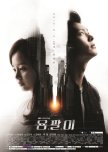
Cette critique peut contenir des spoilers
About Yong Pal:Yong Pal is a drama that caught my attention, for the quality of the actors who participated in this production, especially Jo Hyun Jae, who was impersonating his first role as a villain. He characterized a classic villain, in an excellent way. He was a rebel with a cause, rehabilitable, who could have been saved by the scriptwriter, instead of killing him so cruelly. I realized that the drama really revolved around Han Do Jun, the character of Jo Hyun Jae, so much so, that it was necessary to add additional chapters, in which Do Jun was a "hallucination" of his sister, the product of the guilt of having sent him to death. I had to understand that Han Do Jun lived rebelliously. That he was the eldest son, but nevertheless, not the heir. And that his father had the blame for the crooked way in which he always treated him. I am very hurt, because this is the first real villain that characterizes Jo Hyun Jae, because in "Ad Genius Lee Tae Baek" characterized a "villain lite", a mere antagonist who didn't get his way, an inferior character for the great talent shoed off of Jo Hyun Jae and the reason why I'm hurt is because his effort was not recognized in the annual awards given on the television network. They never recognized his great effort with an honorable mention. He sacrificed his romantic leading man image and clean man, to characterize the evil and Machiavellian Han Do Jun, which in turn, the thirst for love was the cause of his rebellion.
Cet avis était-il utile?
















